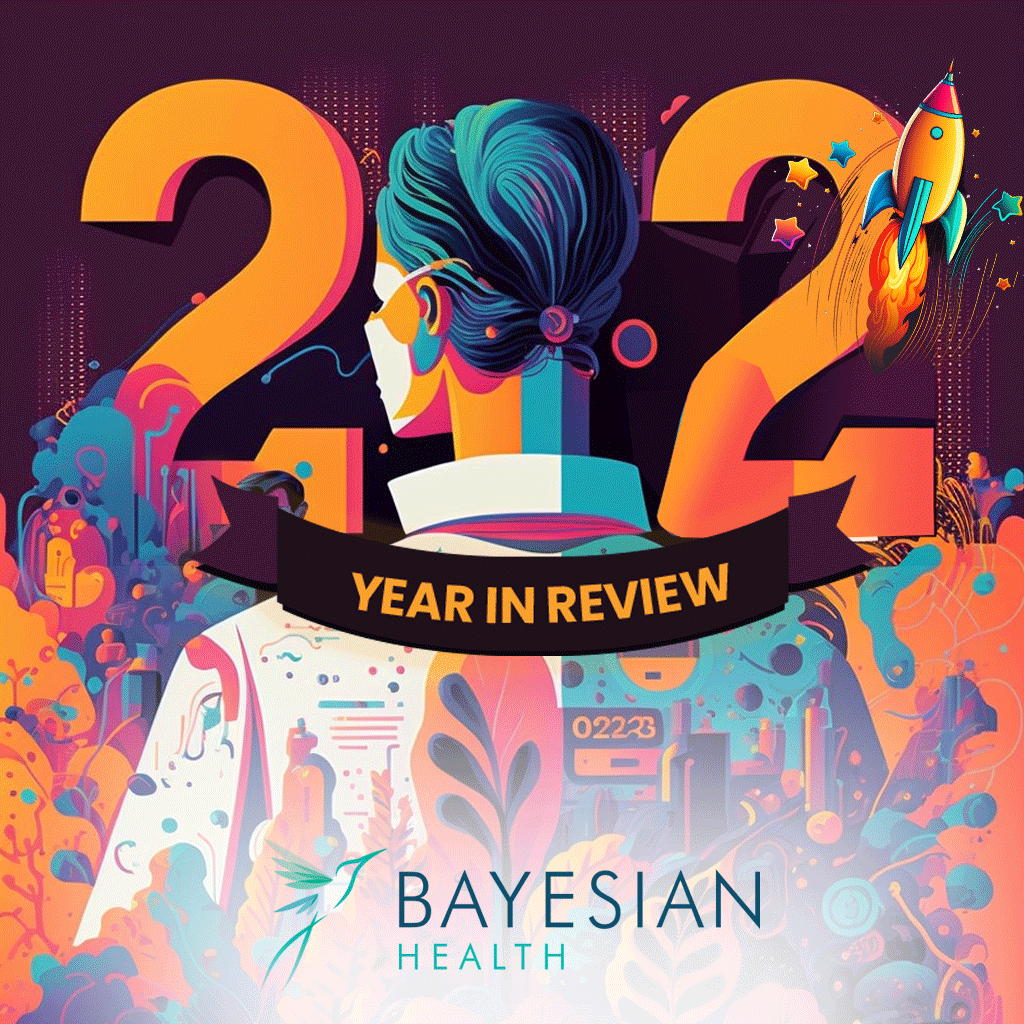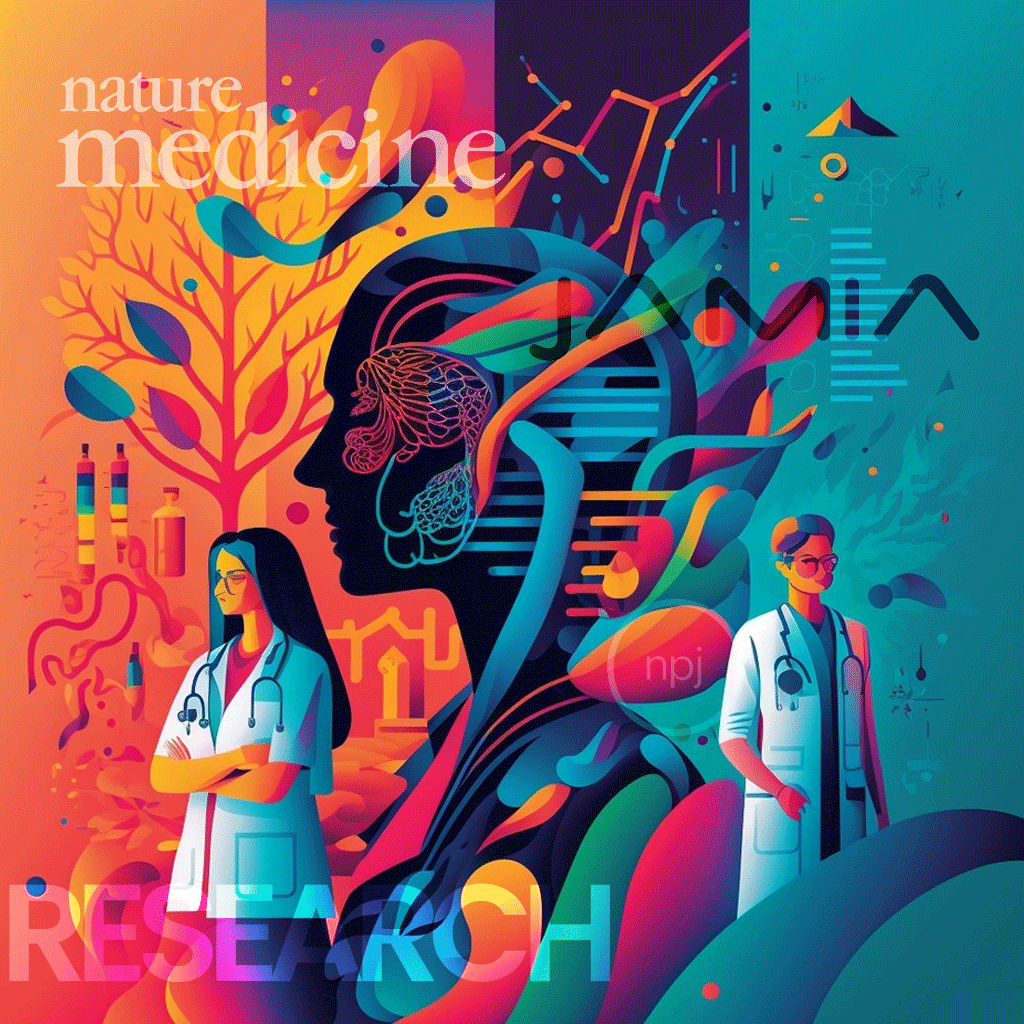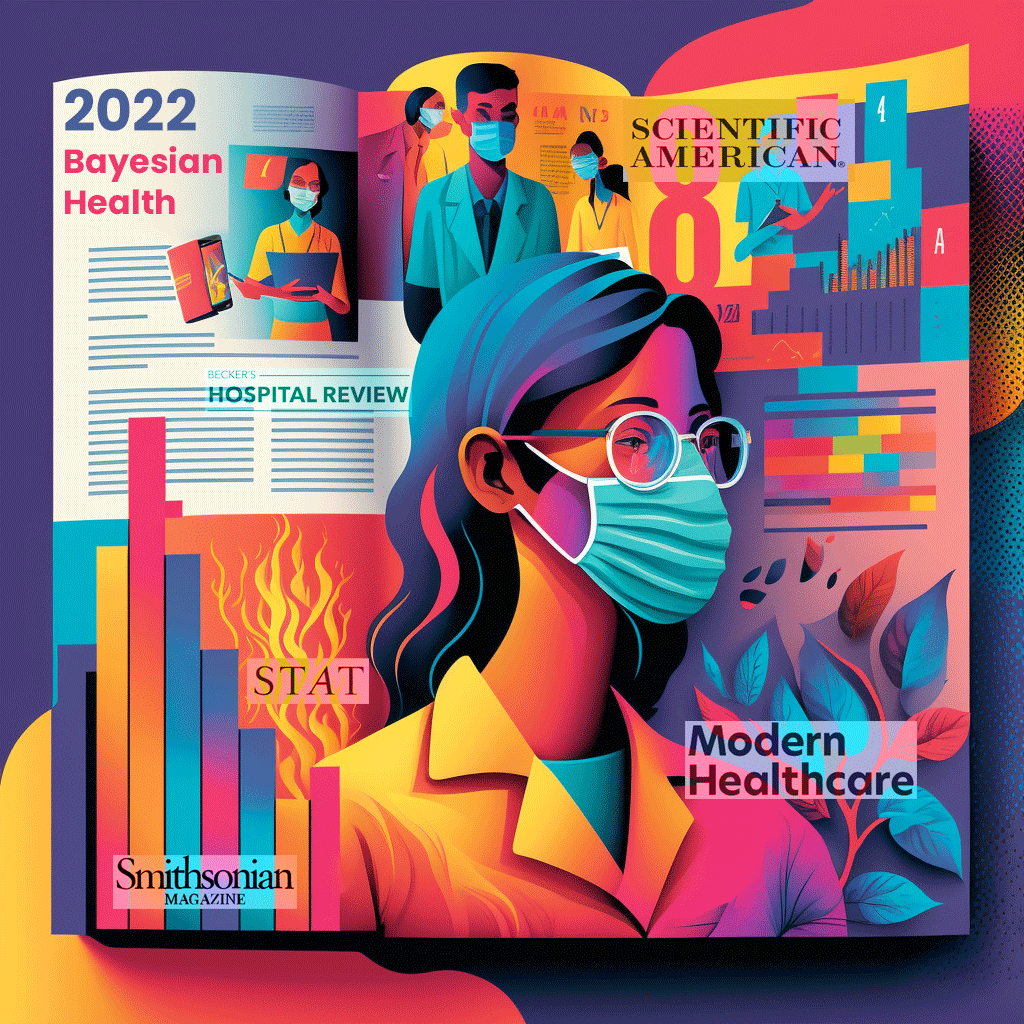Reflection on a Banner Year
Fomenting change within our big, messy healthcare system not only requires big thinking, but also action. 2022 was a big year for Bayesian! Our team made extraordinary progress, setting us up for even bigger success in 2023!
We invite you to review the highlights below: from ground-breaking results showing mortality reductions and efficiency gains at multiple academic and community hospitals to results validated in peer-reviewed publications to building awareness of AI Done Right through thought leadership, editorials and in-person events across the US and world.
PRODUCT & MODEL PERFORMANCE
From a technology standpoint, our product, data science, clinical and engineering teams took major steps this year advancing our products, models and UX.
- Model Performance: Bayesian’s engineers and product teams expanded the efficacy of our model performance, streamlining the accuracy and precision of our care signals.
- Early Warning Suite: Bayesian expanded the capacity and value of our Early Warning Suite (EWS) offerings to a wider range of critical condition areas such as all-cause deterioration and pressure injuries.
- EHR Integrations: Our teams also made strides in interoperability after completing a 2-year effort enabling deep integrations with Epic, a year completing integrations with Cerner and TransformativeMed’s Core Work Manager, facilitating easier workflow, increasing visibility of patients at risk and advancing frontline user engagement.
- Cloud Partnerships: We have also completed partnerships with Amazon AWS and kicked-off a special partners program with Azure: Bayesian continued to expand the capacity and value of our Early Warning Suite (EWS) offerings to a wider range of critical condition areas such as all-cause deterioration and pressure injuries.
We were able to significantly grow our internal team with experienced hires across machine learning, engineering, product, marketing, regulatory, client success, patient safety, nursing and clinical leadership from leading organizations. We are jazzed to be working with some of the smartest people and partners to invent the future of Intelligent Care Augmentation (ICA)! Their contributions continue to reinforce Bayesian’s standing as the easiest-to-use, most comprehensive and streamlined clinical augmentation tool in healthAI.
In 2023, we expect to add more modules tackling use cases within HACs, HAIs, and VBC. We will continue making significant investments in our platform to further advance its state-of-the-art performance and configurability.
BREAKTHROUGH RESEARCH PUBLISHED
- Groundbreaking results in frontline adoption and outcomes: In 2022, Bayesian published groundbreaking research in Nature Medicine, associating an 18.2% sepsis mortality reduction with our clinically deployed AI platform deployed across all 5 hospitals at the Johns Hopkins Health System over a 3 year period, and achieving high provider adoption (89%). This research is a breakthrough for the field of AI, and is the result of nearly a decade of significant technological investment, deep collaboration, and rigorous evaluation. LINK
- Advancing AI-Governance: Bayesian collaborated with experts across industry, academia, and regulatory agencies to release the DECIDE-AI guideline, a rubric for evaluating efficacy and clinician experience for AI-driven decision support tools. These guidelines were published in Nature Medicine and BMJ. LINK
- Bias Checklist: Furthermore, JAMIA published a first-of-its-kind research paper by Bayesian, providing a comprehensive way to measure bias within AI solutions, a key challenge in healthcare AI deployment. LINK
We also published several methodological papers, two in partnership with the FDA and NASA, that advance our underlying technology, platform performance, monitoring and safety.
INDUSTRY TRENDS ACCELERATING HEALTHAI USE
There are several areas of progress in the industry that provide tailwinds accelerating responsible HealthAI adoption:
FDA & Regulatory Oversight – Over the last 3 years, Suchi’s been funded by the FDA as a research partner to them for developing approaches to improve AI-driven medical software evaluation both pre and post-market approval. Q4 2022 was a busy month with lots of news from DC around AI.
We’ve seen a significant increase in the adoption of AI for improving clinical care: 500+ new AI-driven software tools achieved FDA approval by the end of 2022. The majority of these have been in imaging. Suchi’s thought leadership has advocated for the need of increased rigor in evaluating tools outside of imaging (LINK). Finally, new guidelines were released by the FDA in Q4 2022 mandating increased oversight for non-imaging predictive tools. This is encouraging as it enables high-quality, validated tools to scale and reduces the amount of noise and hype in the space. Bayesian’s platform operationalizes these state-of-the-art approaches and makes it accessible in an easy-to-use way by providers.
CPT Codes for Health AI – In 2022, for the first time, autonomous AI received CMS endorsement for payment through new CPT codes! Different types of CPT codes are being created for “work done by machines” as “assistive,” “augmentative,” and “autonomous”. CPT codes further signal CMS’ intention to facilitate HealthAI adoption. This will provide additional ROI for delivery organizations as well as enable frontline trust through increased exposure. (LINK)
KEYNOTE SPEECHES & TALKS
Suchi Saria gave 40+ invited keynotes and panel talks at academic conferences, government summits and healthcare events.
Here is a selection of our favorites:
- Keynote at Nature Medicine’s Annual Meeting, “Medicine in a Virtual Age” – In October, Suchi gave the keynote address speaking on Intelligent Care Augmentation’s role in improving patient outcomes, increasing caregiver capacity and advancing better frontline clinician experience, all while driving real-world financial benefits. LINK
- Infectious Disease Meetings – Suchi spoke at preeminent infectious disease meetings, including giving the keynote lecture at the 32nd European Congress of Clinical Microbiology & Infectious Diseases (ECCMID) in Portugal (LINK) and IDWeek 22 in Washington, DC. LINK
- Prestigious Healthcare Educational Events – In March, Suchi was invited to lead an informative round table discussion at NEJM Catalyst’s AI and Machine Learning for Health Care Delivery event.
- Government Summits & Advisory Positions – In September, Suchi was one of three invited guests to present to The President’s Council of Advisors on Science and Technology (PCAST) and their Patient Safety Group Bayesian’s work in intelligent care augmentation using AI. LINK. In December, Suchi joined thought-leaders from the FDA, NIH, AHRQ, and ONC for Health Information Technology for the closing keynote panel of the Annual eHealth Exchange’s Annual Meeting.
Suchi’s aim of building collaborative relationships within healthcare (and beyond) is about challenging the entrenched notions that our health system is hopelessly complex, chaotic and broken. Suchi’s commitment to this thought-leadership work comes from her belief in the transformative effect that data, properly harnessed, can have on patient outcomes, caregiver effectiveness and the bottom line.
SUBSTANTIAL PRESS COVERAGE
Following the release of the Nature Medicine studies, our work was editorialized in 30+ different publications including the Atlantic, Scientific American, Smithsonian Magazine, Becker’s, Stat, Modern Healthcare, Politico and more.
Link to all of our press coverage
Both the technology and healthcare industries have taken note of our commitment to a research-first approach.
INDUSTRY RECOGNITION/AWARDS
We were honored with several awards this year for innovation and leadership in Digital Health and AI: Modern Healthcare’s Top 25 Innovator Award, Crain’s New York Notable Healthcare Leaders Award, The Empire Whole Health Heroes Award, the Business Intelligence Group’s BIG Awards for Business amongst others.
Most exciting was Bayesian being selected as a UCSF Digital Health “Rising Star Champion” recognizing the top 3 emerging startups among 1250+ startups spanning all areas of healthtech and healthcare.
Finally, in late December, Bayesian was nominated by Business Insider as one of 33 Startups to Watch in 2023.
While 2022 was a breakthrough year for Bayesian, it’s exciting to think about where we will be this time next year!
The long term impact of clinical staffing shortages on care delivery and outcomes will continue to challenge the financial wellbeing of our healthcare system for the foreseeable future. While industry leaders (McKinsey, Harvard, Stanford, Becker’s, etc.) extol the virtue of AI and clinical automation as a way to inject $300B-$500B in financial benefit over the next five years, Bayesian Health is addressing this head-on!
As we enter into 2023, we are empowered to drive even more innovation into our models, technology and services to bring to market the easiest-to-use, most intuitive and rigorously evaluated clinical augmentation solution in healthAI.
Join us and be a part of this exciting journey as we continue to revolutionize healthcare!








